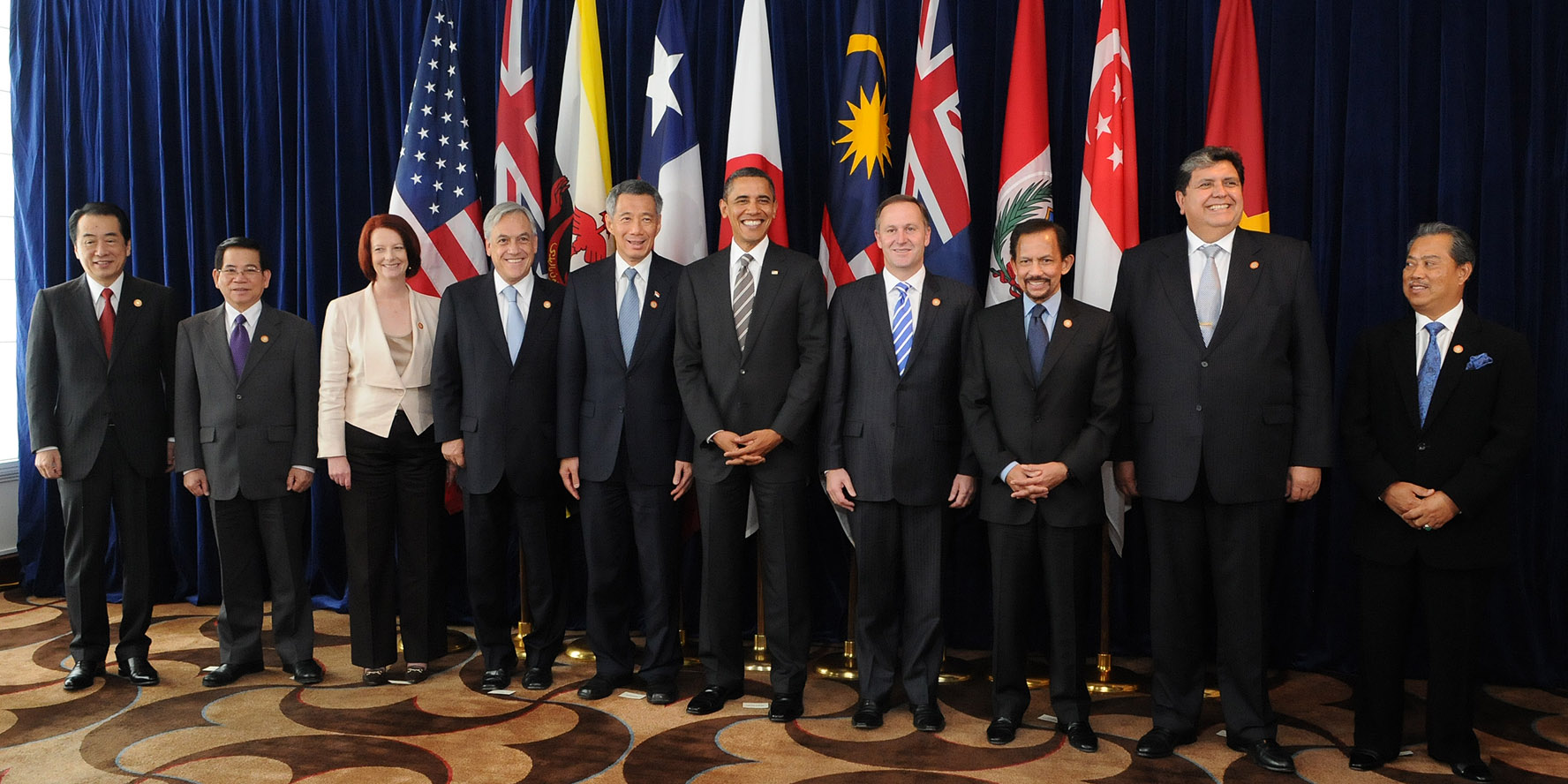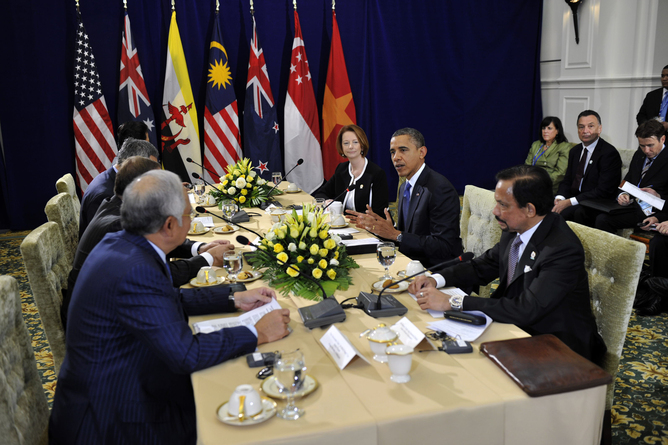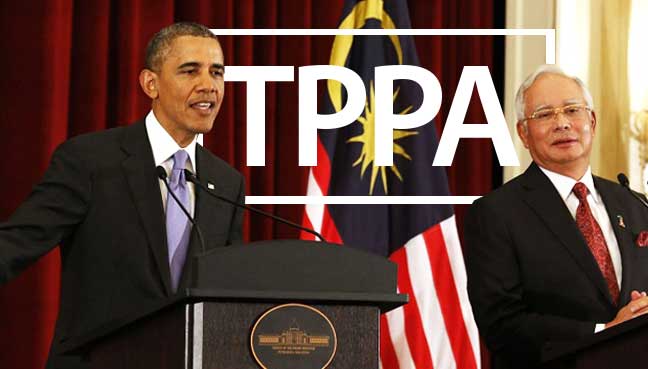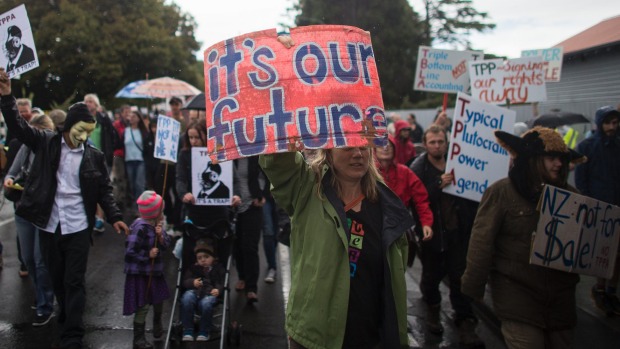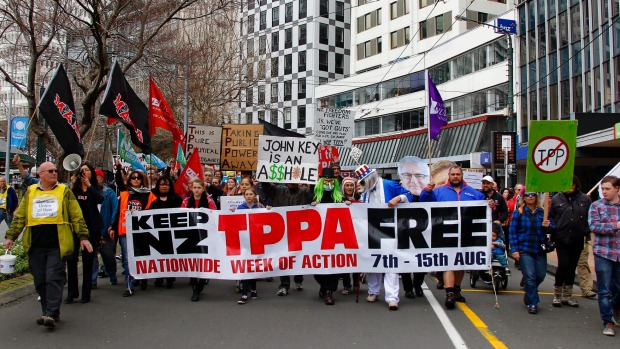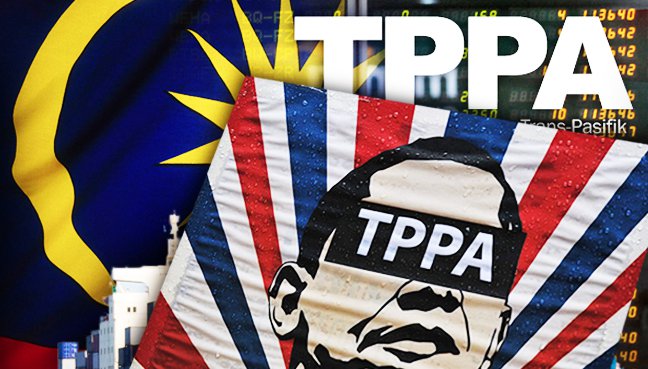How Will TPPA's Stringent Internet Law "Spy" On Our Internet Activities?
An agreement that has the possibility to "track" all your Internet activities.
In line with moving towards becoming a first world nation and revolutionising the Malaysian economy, the government has been an eager participant in the Trans Pacific Partnership Agreement (TPPA) ever since the discussions first started
The key leaders from the TPPA participating nations
Image via Office Of The United States Trade RepresentativeAfter more than five years of lengthy discussions between 12 countries, the key leaders from the participating nations finalised and sealed the agreement on TPPA on 5 October.
International Trade and Industry Minister Mustapa Mohamed stressed that this major agreement could really help fast-track Malaysia's economy and give it the much needed boost to compete with the world's leading nations.
Mustapa also believes that TPPA would really help with increase the export of Malaysia's revenue rich products such as palm oil, rubber and electronics, as reported by Singaporean news site, Channel News Asia.
According to a recent report by Malaysiakini, Jay Jay Denis, a researcher with a local NGO, Monitoring Sustainability of Globalisation (MSN), revealed that, if the Malaysian government were to sign the TPPA next year, the agreement may open up the possibility of the local Internet service providers legally "spying" on your Internet activities
Jay Jay Denis, a researcher with the NGO Monitoring Sustainability of Globalisation (MSN)
Image via The Malaysian InsiderDenis said the provisions are meant to deter copyright infringements on the Internet, but end up giving too much power to ISPs.
Among others, ISPs would be given 'legal incentives' to cooperate with copyright owners to deter copyright infringement.
Upon being alerted to an alleged infringement, the ISPs would be required to remove the supposedly infringing content quickly, or disable access to it, and notify promptly the Internet user who uploaded the material.
All these, according to Denis, means that Malaysian ISPs would be required to store data about their users that they wouldn't otherwise have kept.
While speaking about the IP rights in the United States to Malaysiakini, Denis mentioned that America is the only country in the world to be practising this law under the US Digital Millennium Copyright Act (DMCA)
“The information collected by our ISPs are very basic in the sense that if you want to have an account with a particular ISP, you purchase their Internet plan and they would have details like your bank account details if you are paying online, your mailing address, your ID, and your name. Nothing more than that.
“This (TPPA) is taking it so many steps further,” added Denis.
So, how would the strict Internet laws under TPPA legalise service providers "spying" on Internet users?
Not only will these strict laws under the TPPA trample on the users' Internet privacy, it might also lead to abuse of sensitive information collected by the employees of the respective service providers.
Denis further explained that since TPPA is focusing on tightening copyright laws, it can give service providers the permission to take down any content or material posted on the Internet should they be alerted of any copyright infringement issues.
While it is a common belief that the Internet service provider only refers to the companies providing you with the Internet service, the TPPA would include your Internet search engines, online storage services, e-mail and web-hosting services, as reported by Malaysiakini.
For example, if you were to upload any copyrighted material on the Internet, your service provider can easily remove it without your knowledge and there is a chance of you being accused of copyright infringement
However, according to Denis, there is a clause under TPPA that allows the affected users to "file counter-notices against the allegations to restore the content that has been taken down"
But, Denis emphasised that this clause under the TPPA is only optional, and that it is up to the participating countries to decide on the implementation of it.
While TPPA is a fairly new issue in Malaysia, in countries like Australia and New Zealand, a number of its people have been speaking against this trade agreement for a while now
The parties against the Trans Pacific Partnership in these countries have even set up websites detailing the downsides of the agreement for their countries.
According to these sites, TPPA can greatly affect the livelihoods of the people as the laws surrounding healthcare, Internet and the economy will be very rigid.
Dubbed as "the biggest threat to the Internet" by campaigners against it, the Trans Pacific Partnership would easily cover about 40% of the world's economy, according to The Independent
Its claimed purpose is to create a unified economic bloc so that companies and businesses can trade more easily — but it also puts many of the central principle of the Internet in doubt, according to campaigners.
One particularly controversial part of the provisions make it a crime to reveal corporate wrongdoing "through a computer system".
Experts have pointed out that the wording is very vague, and could lead to whistleblowers being penalised for sharing important information, and lead to journalists stopping reporting on them.
Despite all the assurances by the government, a lot of issues and concerns have been raised about the TPPA that remained a mystery to the public till recently
While first world nations like the United States of America, Canada and Singapore can benefit greatly from the trade agreements of TPPA, as it allows them to penetrate into the local markets of the participating nations easily, it is the small businesses in third world nations like Malaysia that might face the brunt of the agreement.
Among the parts of agreement that raised a great deal of issues were the prohibition of taxes on export of raw materials, local business, healthcare and stringent intellectual property (IP) laws.
